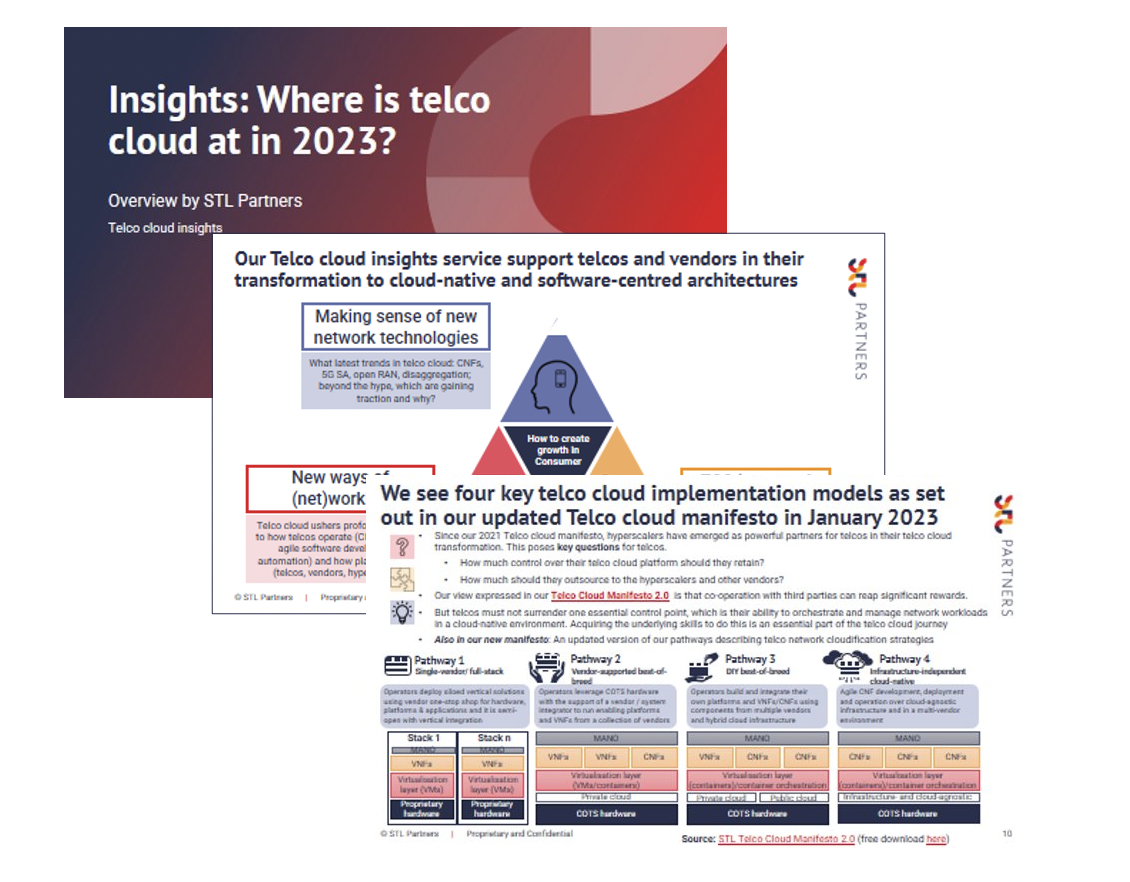
What is telco cloud and why does it matter?
This overview explains the essentials about telco cloud, including virtualisation, NFV and SDN. Read more specialist research and articles on virtualisation and get in touch with our specialists on our Telco Cloud hub.
Telco cloud represents a fundamental evolution in the way that networks are built, run and managed. It is not only about deploying virtualised and programmable infrastructure, leveraging technologies, such as NFV, SDN, AI, automation and distributed computing, to change the way that telcos operate and perform… but also about adopting cloud business practices that change the way they innovate. This was all about becoming more open, dynamic, agile and efficient.

Most telco cloud deployments to date have focused on network function virtualisation (NFV), where telcos replace expensive dedicated networking equipment with common off-the-shelf equipment which runs “virtual” network functions (VNFs). With software-defined networking, network functions now running as software can be managed, controlled and configured,, using software applications and portal. With the use of automation and AI, many of these tasks will no longer require humans and will increasingly become more proactive rather than reactive, for example from responding to faults or incidents in the network to preventing them.
All the exciting things that the industry is talking about, with 5G, network slicing, edge computing supporting a broader range of services and applications to customers – none of this can be done as envisioned without deploying telco cloud technology. All of this relies on highly flexible, dynamic, programmable networks that can perform at scale.
Although the number of deployments has been surging after a slow start, with a particular focus on supporting core networking services, very few telcos can boast about the benefits they have reaped. Very few can say that their telco clouds have delivered on the original promises above.
Why is that? There are still a number of key needs to be addressed:
- Interoperability between functions, management and orchestration systems from different vendors. While ETSI’s NFV framework provides for MANO capabilities, many telcos have found that existing components and solutions do not meet their requirements. Such capabilities are required for telcos to have full visibility and control over their networks, which currently they don’t have.
- Open, vendor-neutral platforms. Many telcos have cited an open, multi-vendor telco cloud platform as their preferred goal. It was supposed to be about the ability to pick and mix software from different vendors, to drive competition and keep costs down. Yet due to the lack of interoperability between functions and MANO systems, many telco cloud deployments to date have been proprietary, vertically-integrated stacks (i.e. single vendor providing most, if not all, of the network functions).
- Functions that outperform anything we’ve seen before. Telcos to date have struggled to realise the performance and efficiency gains to support growth in existing services with their telco cloud deployments. There has been a lot of talk about cloud-native network functions. A big question is really around whether network functions being deployed are truly cloud-native or whether they are just encapsulated in a virtual machine (VM), which has huge implications on performance, cost and flexibility.
With the increasing number of 5G announcements and commitments being made, it is key that the industry comes together to collaborate and overcome these problems – not just to support existing business models, but to support future innovation.
We specialise in telco cloud, virtualisation and NFV/SDN, and can help you. Your first step could be to look at a selection of our recent research and insights in telco cloud, or get in touch to speak to our specialists with any questions.
Network APIs: Unlocking new value in the telco cloud
Network APIs may offer an answer to the question of how to monetise recent and upcoming telco cloud deployments. Virtualised networks upgrade APIs and enhance the value they offer to developers and customers. To unlock their potential, telcos should focus on optimising their commercial models.
Progress in telco cloud: How do we measure agility?
In the January 2023 update to our Telco Cloud Deployment Tracker, which was looking back at the entirety of calendar year 2022, we recorded an overall slowdown in deployments.
Network Innovation insights pack
This document will provide you with the latest insights from our research and consulting work, including some extract of our Telco Cloud Manifesto 2.0, our latest analysis on open RAN.




